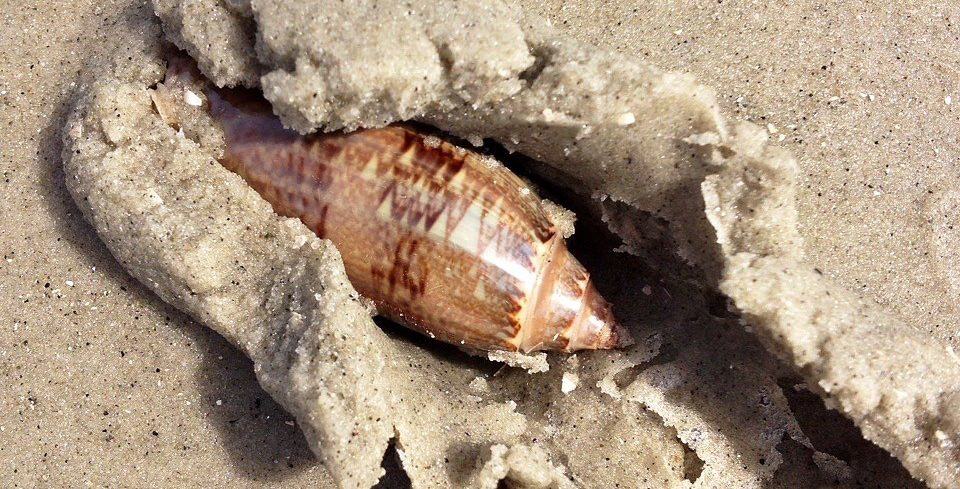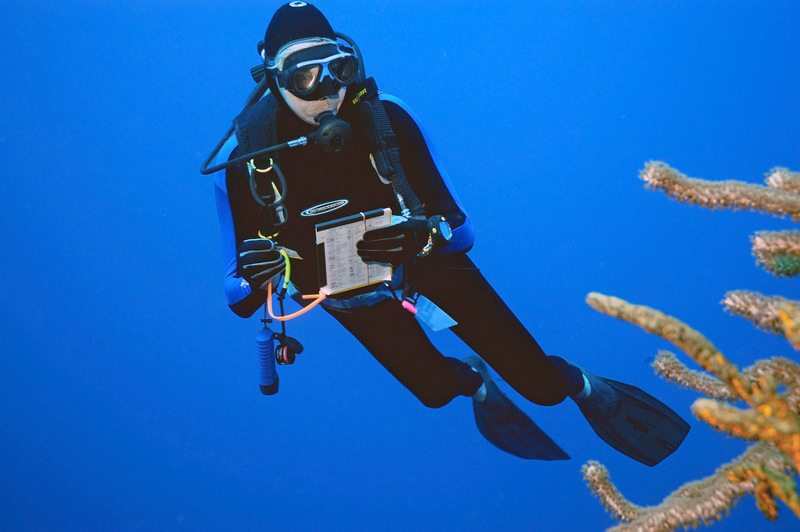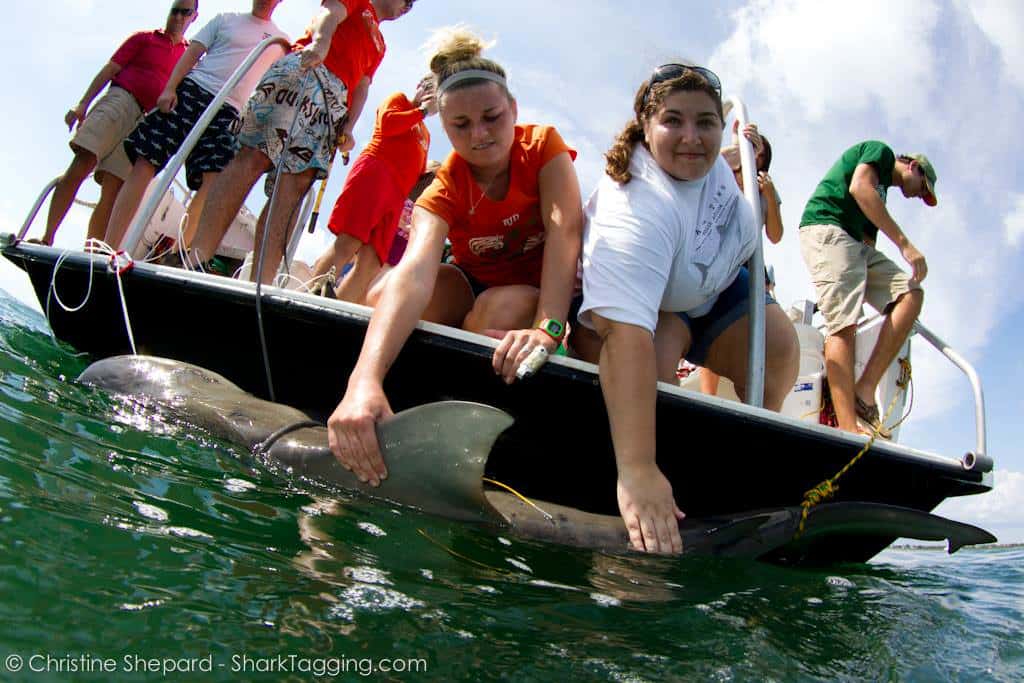Marine & Oceanic Sustainability Foundation Announces the Appointment of a New Board Member
Mar. 27, 2015 – WILMINGTON, Del. —The Marine & Oceanic Sustainability Foundation (MOSF), a Delaware-based marine conservation nonprofit, today announced the appointment of Jonathan Tourtellot to the organization’s Board of Directors, effective immediately. Mr. Tourtellot’s appointment expands the existing Board to 8 directors.
“Jonathan’s many years with the National Geographic Society and broad experience in sustainable tourism, destination stewardship and science communications will add a valuable perspective to our Board of Directors,” said Jennifer Pitzer, Managing Director of MOSF. “We appreciate his willingness to serve as a director and look forward to benefitting from his judgment and counsel.”
After 22 years as a senior writer and editor for the National Geographic Society, Mr. Tourtellot founded and directed National Geographic’s Center for Sustainable Destinations in 2001. He originated the concept of geotourism, defined as “tourism that sustains or enhances the geographical character of a place—its environment, culture, aesthetics, heritage, and the well-being of its residents.” Mr. Tourtellot is the Geotourism Editor for National Geographic Traveler magazine and continues to address numerous national and international groups, including the U.N. World Tourism Organization, UNESCO, and the World Travel and Tourism Council.
Mr. Tourtellot helped the U.S. Travel Association develop the 2002 study Geotourism: The New Trend in Travel, a landmark survey of American traveler behavior and attitudes about issues of sustainability. In his capacity as geotourism editor for Traveler magazine, he has written on such topics as climate change, nature tourism, and heritage travel. He is a two time winner of the prestigious Lowell Award, presented by the Society of American Travel Writers Foundation and in 2011, Traveler magazine won the prestigious World Tourism Award for his geotourism initiatives.
Mr. Tourtellot joins MOSF’s existing Board of Directors:
- Armin Afsahi, Associate Vice Chancellor for Alumni and Community Engagement at the University of California, San Diego
- Kim Brown is a business owner, serial entrepreneur, consultant, and author. Kim and her family are current sailing around the world on a 56’ Oyster sailboat.
- Shilpi Chhotray is a Manager of Stakeholder Engagement at Future 500 in San Francisco, California
- B.R. McConnon, III, founder, Chairman, and CEO of DDC Advocacy, an international full-service advocacy firm in Washington, D.C.
- David Pitzer, Senior Vice President and COO of Frederick Mutual Insurance in Frederick, Maryland
- Dr. Tiffany Moisan, Research Physical Scientist in the Hydrological Sciences Lab at NASA Goddard Space Flight Center in Wallops Island, Virginia
- Rosemarie Watkins, retired, former Director of International Policy at the American Farm Bureau Federation in Washington, D.C.
About the Marine & Oceanic Sustainability Foundation
Founded in 2013, the Marine & Oceanic Sustainability Foundation (MOSF) is dedicated to the advancement of marine conservation and sustainability projects. MOSF engages in market-driven, tourism centric programs that balance ocean health, human prosperity and emphasize marine stewardship. We establish geotourism and citizen science activities, which sustain or enhance the geographic well being of a destination, emphasize the culture and history of the area, and benefit both visitors and residents. For more information, please visit our website at: www.mosfoundation.org
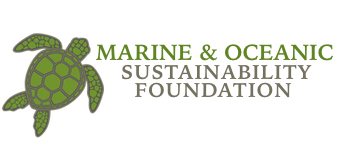
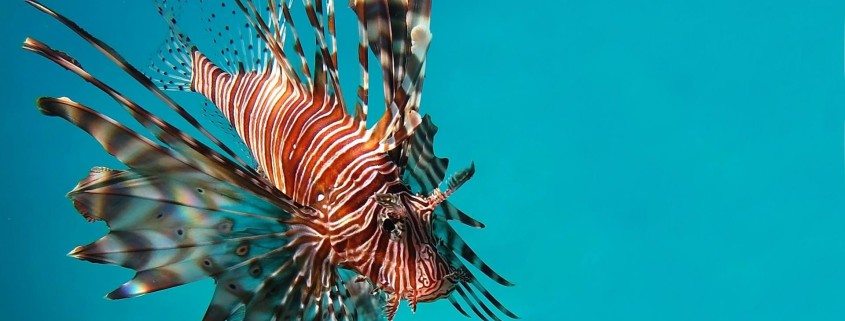
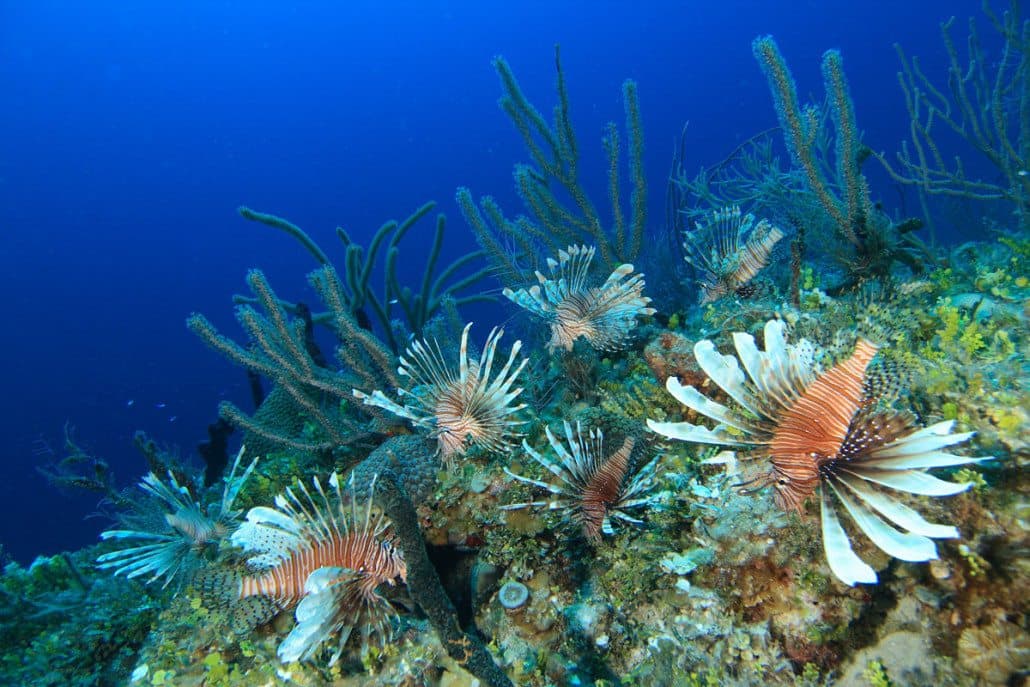
 While this one mitigation method will be helpful, other efforts are needed to reduce the lionfish populations. Total eradication is very unlikely, if not impossible, because lionfish have already shown that they can easily adapt to different environmental conditions, including colder temperatures and deeper depths. In February 2015, NOAA’s Office of National Marine Sanctuaries released a 3-year comprehensive plan on how to respond, control, and adapt to an active marine invasion, specifically the lionfish. You can find this document
While this one mitigation method will be helpful, other efforts are needed to reduce the lionfish populations. Total eradication is very unlikely, if not impossible, because lionfish have already shown that they can easily adapt to different environmental conditions, including colder temperatures and deeper depths. In February 2015, NOAA’s Office of National Marine Sanctuaries released a 3-year comprehensive plan on how to respond, control, and adapt to an active marine invasion, specifically the lionfish. You can find this document 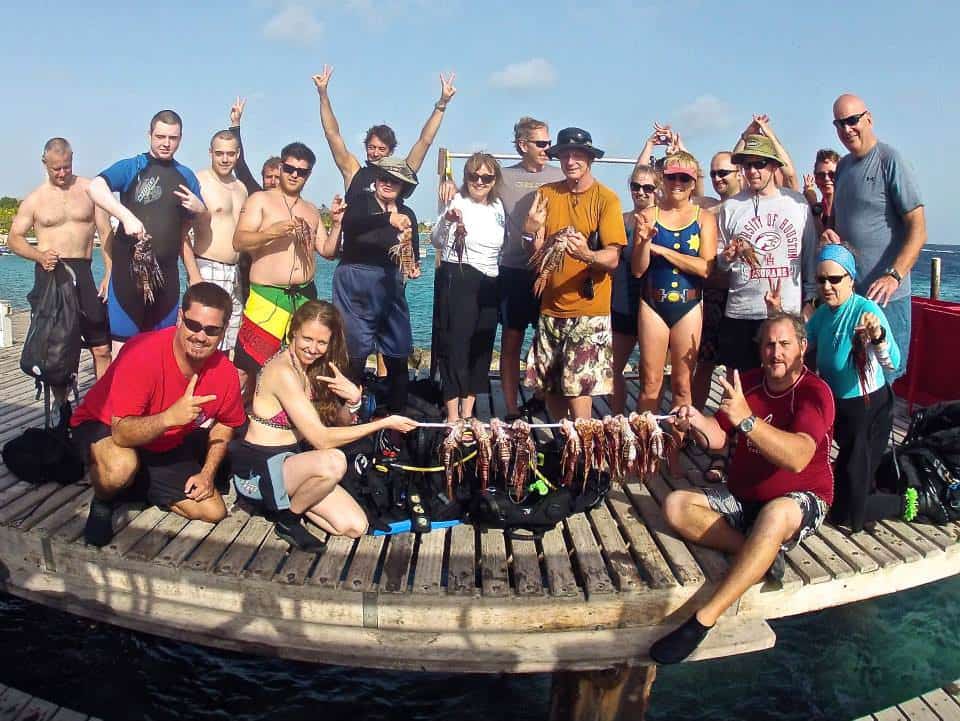 It is clear that mitigation efforts can make a significant impact at the local level; however, it is still unknown how significant those impacts are at the macro level. Raising awareness is one of the major goals of the aforementioned mitigation techniques and is important for the eventual control of this invasive fish. Healthy coral reefs and lionfish are struggling to coexist in the Western Atlantic, and we need our reefs to be healthy, as many people depend on these fragile ecosystems for their livelihoods. So order lionfish at your next dinner out, and whenever you see one while diving or snorkeling, spear it, but please be careful!
It is clear that mitigation efforts can make a significant impact at the local level; however, it is still unknown how significant those impacts are at the macro level. Raising awareness is one of the major goals of the aforementioned mitigation techniques and is important for the eventual control of this invasive fish. Healthy coral reefs and lionfish are struggling to coexist in the Western Atlantic, and we need our reefs to be healthy, as many people depend on these fragile ecosystems for their livelihoods. So order lionfish at your next dinner out, and whenever you see one while diving or snorkeling, spear it, but please be careful!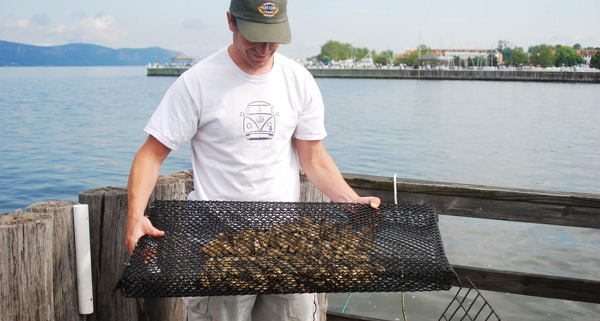
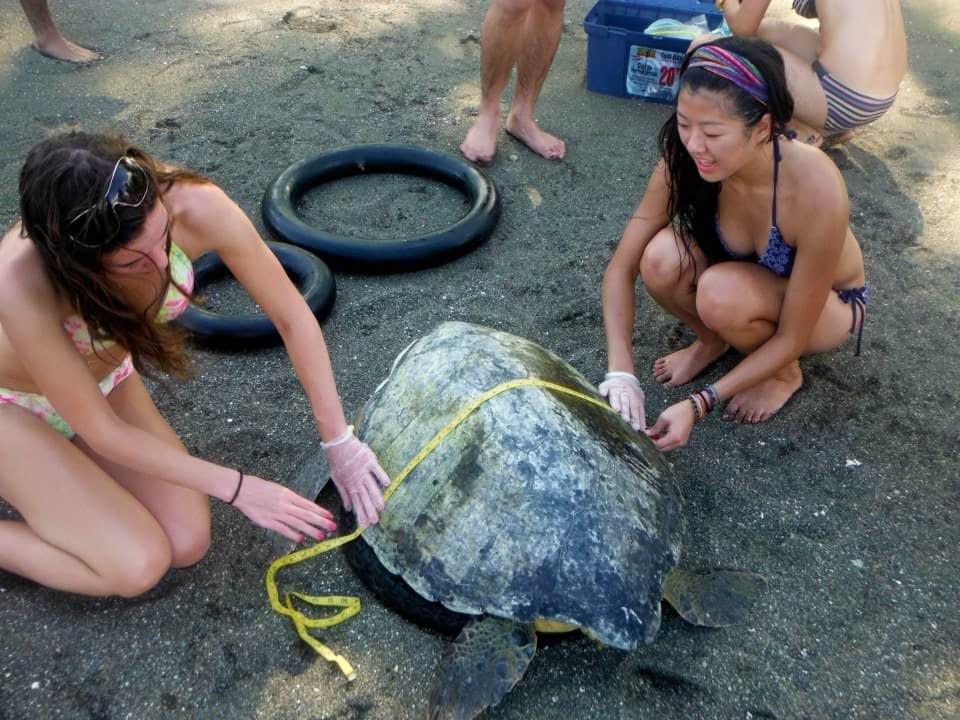 Last summer, my family and I were strolling along a beach in South Carolina and noticed beautiful shells that were washing up onto the beach with each wave. The creatures would quickly burrow themselves, and their protective shells, into the wet sand. I took a few photos and posted them on Facebook. I commented, “Wow, these shells are beautiful, anybody know what they are?” Honestly, I didn’t expect much of a response. Instead, I received a number of comments about what species of marine gastropod it was and one oceanographer friend exclaimed, “I am so envious, where are you? I have always wanted to see one of those!”
Last summer, my family and I were strolling along a beach in South Carolina and noticed beautiful shells that were washing up onto the beach with each wave. The creatures would quickly burrow themselves, and their protective shells, into the wet sand. I took a few photos and posted them on Facebook. I commented, “Wow, these shells are beautiful, anybody know what they are?” Honestly, I didn’t expect much of a response. Instead, I received a number of comments about what species of marine gastropod it was and one oceanographer friend exclaimed, “I am so envious, where are you? I have always wanted to see one of those!”